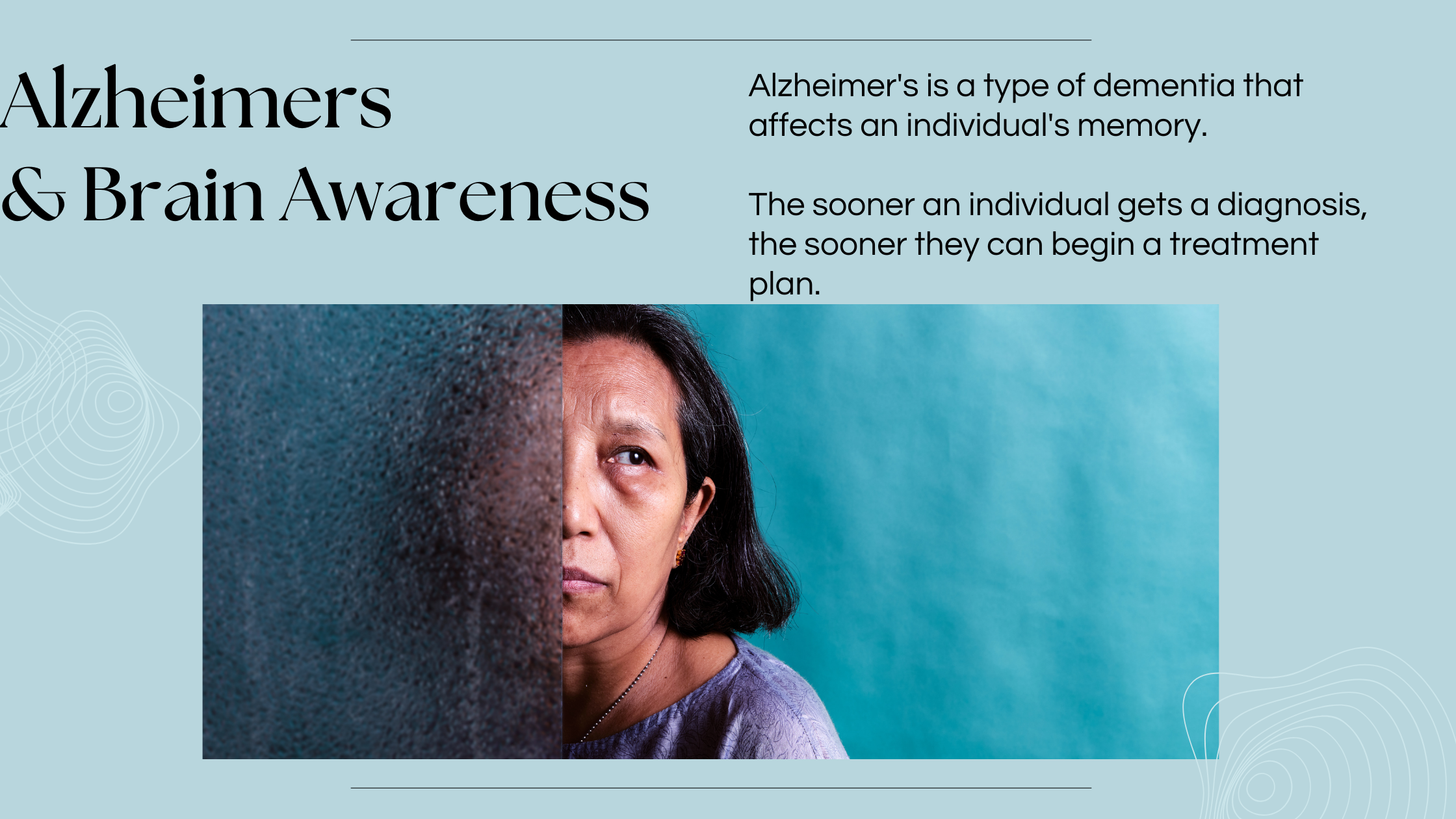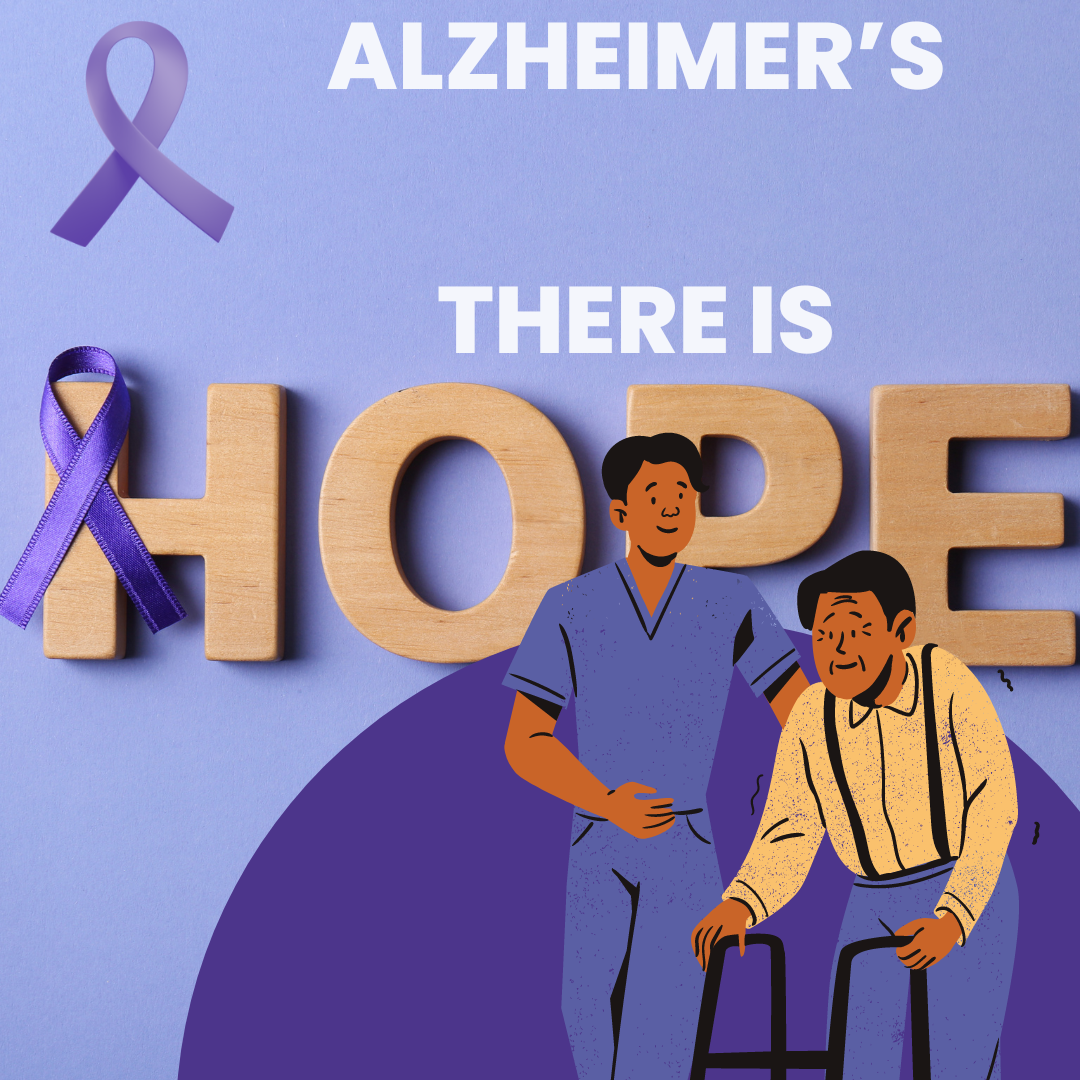
Alzheimer’s disease, a progressive neurological disorder, is a growing concern worldwide. June marks Alzheimer’s & Brain Awareness Month, a critical period for spreading awareness about this debilitating condition. Understanding Alzheimer’s & Brain Awareness is crucial for early diagnosis and effective care. In this blog, we will delve into the early signs of Alzheimer’s and discuss care strategies to support affected individuals and their families.
Early Signs of Alzheimer’s Disease
Recognizing the early signs of Alzheimer’s is essential for timely intervention. One of the first indicators is memory loss, particularly forgetting recently learned information. Other symptoms include difficulty in planning or solving problems, challenges in completing familiar tasks, confusion with time or place, trouble understanding visual images and spatial relationships, and new problems with words in speaking or writing. If you notice these signs in a loved one, it is important to consult a healthcare professional promptly.
Early diagnosis can significantly impact the quality of life for Alzheimer’s patients. During Alzheimer’s & Brain Awareness Month, it is crucial to spread knowledge about these symptoms to ensure that more people can seek help early. For more detailed information on the early signs of Alzheimer’s, you can visit the NHS website here.
The Importance of Brain Awareness
Understanding Alzheimer’s & Brain Awareness goes beyond recognizing symptoms; it involves educating ourselves about brain health. Brain awareness includes maintaining a healthy lifestyle that supports cognitive function. Regular physical exercise, a balanced diet rich in fruits and vegetables, mental stimulation through activities like reading or puzzles, and social engagement are all essential for brain health.
Alzheimer’s & Brain Awareness Month is an opportunity to emphasize the importance of brain health and encourage practices that can potentially delay the onset of Alzheimer’s. By adopting a proactive approach to brain health, we can contribute to the overall well-being of our minds and reduce the risk of cognitive decline.
Care Strategies for Alzheimer’s Patients
Caring for someone with Alzheimer’s can be challenging, but understanding Alzheimer’s & Brain Awareness helps caregivers develop effective strategies. There is need to Understanding Different Stages of Alzheimer’s Disease One key aspect is creating a safe and supportive environment. Simplifying the living space, using labels for everyday items, and establishing a routine can help reduce confusion and anxiety for Alzheimer’s patients.
Communication is another critical area. Caregivers should use simple sentences, maintain eye contact, and be patient. It’s also important to encourage independence where possible, allowing patients to perform tasks they can handle to maintain their sense of self-worth.
Additionally, seeking support is crucial for caregivers. Joining a support group can provide emotional relief and practical advice. Numerous organizations offer resources and support for Alzheimer’s caregivers, including the Alzheimer’s Association.
The Role of Technology in Alzheimer’s Care
In today’s digital age, technology plays a significant role in Alzheimer’s care. GPS devices can help track patients who might wander, and apps designed for cognitive exercises can provide mental stimulation. Online platforms also offer virtual support groups and educational resources for caregivers. Embracing these technological advancements is an integral part of understanding Alzheimer’s & Brain Awareness.
Alzheimer’s & Brain Awareness Month is the perfect time to explore how technology can aid in managing Alzheimer’s. Whether through safety devices or cognitive training apps, technology offers valuable tools to enhance the care and quality of life for Alzheimer’s patients.
Conclusion
Understanding Alzheimer’s & Brain Awareness is essential for early detection and effective management of Alzheimer’s disease. By recognizing the early signs, promoting brain health, and adopting strategic care approaches, we can make a significant difference in the lives of those affected by Alzheimer’s. This Alzheimer’s & Brain Awareness Month, let’s commit to spreading knowledge, supporting caregivers, and advocating for better brain health.
For more information on Alzheimer’s and resources available, visit the Alzheimer’s Association here.
Like and follow us on Facebook, Instagram & Twitter.
Subscribe to our YouTube Channel



